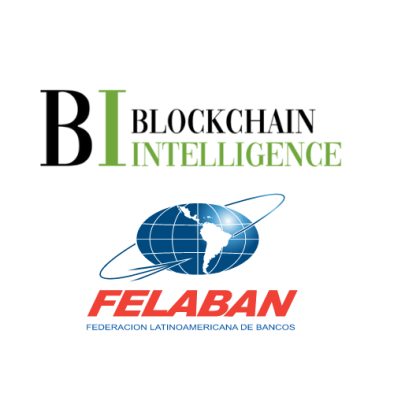
Seminar New Opportunities for Banking in the Blockchain/Crypto Era
On 11 November, Almudena de la Mata, CEO of Blockchain Intelligence, gave a seminar to accompany the official launch of the legal institute’s agreement with FELABAN.
Currently, banking is facing great challenges and opportunities arising from Blockchain technology. The attitude of financial institutions towards this technology has changed over the last few years. The evolution of crypto markets, the impact of digital currencies issued by central banks and the international regulatory response, as well as the possibilities for improving internal management, have made it inevitable for banks to take a proactive stance in this new reality.
This was made clear by Dr. Almudena de la Mata, managing partner of the prestigious specialised centre Blockchain Intelligence, in the keynote lecture “The new opportunities for banking in the Blockchain/Crypto era”. De la Mata addressed the impact of Blockchain on the financial and banking business, taking a look at the different business models that are affected by this technology.
What are the most recent positions of banks in relation to the cryptocurrency sector?
Crypto investment has for many years been on the fringes of the banking supply side. However, the rise in the prices of some benchmark cryptocurrencies has made the crypto market cap grow, increasingly attracting all types of investors who demand services from their banks in this environment.
As a result, custody, investment, trading and payment products have emerged in response to customer interest (institutional, retail and commercial). The role of the regulatory compliance and risk units is becoming crucial in the development of these products and services, which are responsible for giving the green light to projects.
Little by little, greater legal certainty is taking shape with new regulations affecting cryptocurrencies, such as the European proposal for the Regulation of cryptoasset markets (MiCAR), the 5th directive on the prevention of money laundering, the guidelines of the regulatory authorities and the activity within the framework of the Financial Sandboxes. Also, in Latin America, recent regulatory proposals in Panama, El Salvador’s Bitcoin law, Colombia’s sandox, among other initiatives, are shaping a novel framework for the new financial blockchain era.
Another area of impact is blockchain solutions in the framework of financial markets (blockchain issuance, participation in STOs and UCOin). Merchant banking is not lagging behind with solutions for international trade finance needs. More and more customers are applying Blockchain solutions to their international trading and logistics activities, where more agile, cost-effective and efficient financial solutions can be integrated.
De la Mata also referred to the rapid evolution of digital currencies issued by central banks and their potential impact on payment systems, and on the role of banking in the transmission of monetary policy.
Blockchain as a transversal technology has a decisive impact on the internal management units of institutions, which are already applying solutions in the areas of human resources, compliance (with special emphasis on digital identity projects for KYC), auditing and reporting.
And what is the institutional position?
De la Mata discussed European institutional and political support for blockchain technology. This is manifested in three important pillars:
- Regulatory activity
- The creation of EU Blockchain infrastructures (European Blockchain Service Infrastructure, the European digital identity framework or the European digital identity wallet).
- EU-funded business support projects and Blockchain projects with a special focus on improving the productivity of SMEs.
- Let us not forget that the global nature of the phenomenal requires and makes especially relevant the work at international level in standardisation bodies, FSB, G20, BIS, FATF. The work of the Inter-American Development Bank and its Blockchain network
- LACChain stands out, from where Blockchain activity is promoted in a cross-sectoral manner.
This rapid evolution of the application of Blockchain technology to the banking business justifies the need for specialised support and quality training in the different business units, giving meaning to the Blockchain Intelligence -FELABAN alliance to bring the wide range of training resources to Latin America. The next 20th edition of the Legal and Compliance Expert courses on “Blockchain, Smart Contracts, Tokenisation and Cryptoassets” and Blockchain, Cryptoassets and custody, which will begin on 22 November to provide the greatest solidity to the real use of the technology.
